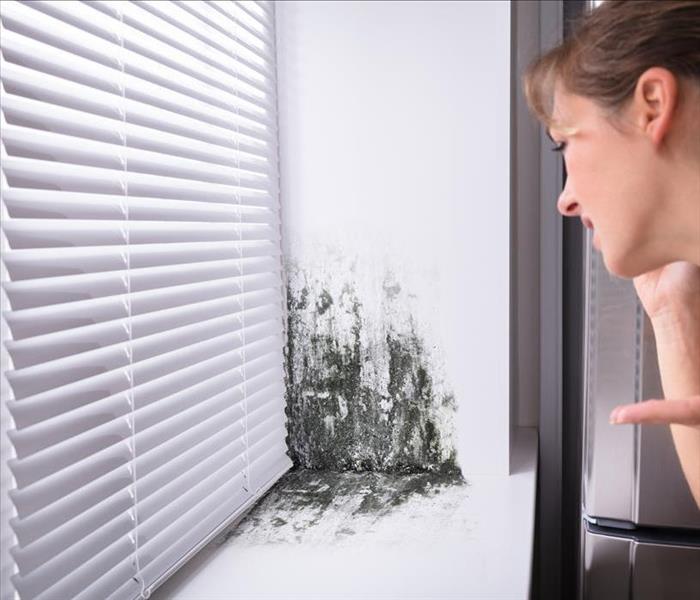What Is mold?
3/19/2021 (Permalink)
Most homeowners are familiar with the type of mold that grows on their shower curtain or the food that has been in the fridge for too long. However, when stories about black mold started making the news, many people became much more concerned about it. This is a brief overview of what mold is.
Facts About Mold
What Mold Is
Mold is a kind of fungus. Mold can live almost anywhere but tends to thrive in places with high moisture. Small amounts of mold are present in most environments but do not become problematic until they begin to rapidly reproduce due to changes in the environment, such as a moisture problem, that promote their growth. Mold can be one of several different colors:
- Black
- Orange
- White
- Green
- Purple
Where Mold Grows
Mold can grow on floors, walls, appliances, carpet or furniture. It tends to grow more rapidly in moist conditions, which makes mold more common in bathrooms, laundry rooms, kitchens, crawl spaces and basements. However, black mold and other types of mold can also become a problem in homes with water damage from floods, severe storms or leaks, which makes prompt water remediation an important defense against mold problems after water damage has occurred.
Mold Prevention Tips
One of the most effective ways to avoid mold problems is to promptly address any moisture issues in your home. If your home has water damage, contact a professional in Salt Lake City, UT, to remove the source of the water and dry out your home. If you find mold growth, the earlier mold cleanup is done, the better chance you have to prevent the problem from spreading throughout your home.
Black mold and other types of fungus can cause severe property damage when left untreated. However, you can mitigate this problem by quickly eliminating sources of excess moisture and promptly removing existing fungus issues in your residence.





 24/7 Emergency Service
24/7 Emergency Service
